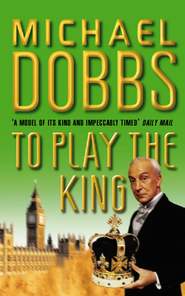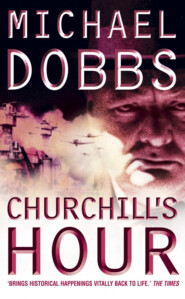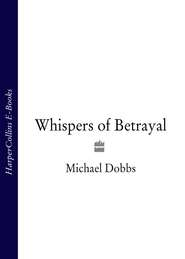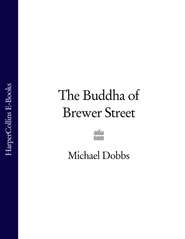По всем вопросам обращайтесь на: info@litportal.ru
(©) 2003-2025.
✖
The Final Cut
Автор
Год написания книги
2019
Настройки чтения
Размер шрифта
Высота строк
Поля
Annita Burke, for instance, an unplanned Jewish suburb full of entangling one-way systems. Richard Grieve, a seedy run-down sea front (which he had once plastered with election posters stating GRIEVE FOR RUSHPOOL and had somehow managed to live it down). Arthur Bollingbroke, a no-frills Northern workingmen’s club with a strong tang of Federation bitter. Colin Catchpole, the member for the City of Westminster, a ruddy face with the red-brick architectural style of the Cathedral, while other parts of his anatomy were rumoured to linger in the backstreets of Soho. Geoffrey Booza-Pitt – yes, Geoffrey, an invented showman for the invented showtown of New Spalden. Middle class and entirely manufactured, lacking in roots or history – at least any history Geoffrey wished to acknowledge. He had been born plain Master Pitt to an accountant father with a drinking problem; the schoolboy Geoff had invented an extended name and some mythical South African origin to explain away untidy gossip about his father which had been overheard by friends across a local coffee shop. And it had stuck, like so many other imaginative fictions about his origins and achievements. You could fool some of the people all of the time, and Geoffrey reckoned that was enough.
Then there was Tom Makepeace. With the flat humour of the East Anglian fens, the stubbornness of its clays and the moralizing tendencies of its Puritan past. He was an Old Etonian with a social conscience which Urquhart ascribed to an overdeveloped sense of guilt, unearned privilege in search of unidentified purpose. The man had undoubted talent but was not from Urquhart’s mould, which is the reason he had been despatched to the Foreign Office where his stubbornness and flat humour could bore for Britain and help fight the cause in the tedious councils of Brussels, and where his moralizing could do little harm.
Urquhart’s Cabinet. ‘And few of you seem to be keeping your eye on the ball, if I may be frank.’ The mood was all flint; Drabble had gone missing, the ghost of his folly not yet exorcized.
‘We must finish in ten minutes, I have to be at the Palace for the arrival of the Sultan of Oman.’ He looked slowly around the long table. ‘I trust it will be rather more of a success than the start of the last state visit.’
His gaze set upon Annita Burke, Secretary of State for the Environment. She was both Jew and female, which meant that the doors of power started off double-locked for her. She had stormed the drawbridge by sheer exuberance but now she sat rigid, head lowered. Something on her blotter appeared to have become of sudden importance, monopolizing her attention.
‘Yes, it was a great pity, Environment Secretary. Was it not?’
Burke, the Cabinet’s sole female, raised her head defiantly but struggled for words. Had it been her fault? For months she had planned a great campaign to promote the virtues and dispel the tawdry myths surrounding the nation’s capital; from their corners and quiet tables in some of London’s finest restaurants the publicity men had examined the runes and pronounced – a press conference and brass band had been organized, a fleet of mobile poster hoardings assembled and seven million leaflets printed for distribution around the city on launch day: MAKING A GREAT CITY GREATER.
What they had not foreseen – could not have foreseen, no matter how many slices of corn-fed chicken and loch-reared salmon they had sacrificed – was that launch day would also coincide with the most catastrophic failure of London’s sewer system, a progressive collapse of an entire section of Victorian brickwork which had flooded the Underground and shorted the electrical control network. Points failure, and humour failure, too. A million angry commuter ants had erupted onto the streets, creating a gridlock that had extended beyond the city to all major feed roads. On one of those feed roads, the M4 from Heathrow Airport, had sat the newly arrived President of Mexico, expecting a forty-minute drive to the royal and political dignitaries already assembled for him at Buckingham Palace. But nothing had moved. The truck-borne poster hoardings had been stuck and defaced. Most of the leaflets had been dumped undelivered in back streets. The press conference had been cancelled, the brass band had not arrived. And neither had the Mexican President, for more than three hours.
It was a day on which the dignity of the capital died, swept away in a torrent of anger and effluent. Failure required its scapegoat, and ‘Burke’ fitted the tabloid headlines so well.
‘Great pity,’ she concurred with Urquhart, her embarrassment exhumed. ‘The Ides were against us.’
‘And you’ve come up with a new idea for reestablishing our reputation for caring environmentalism. The Fresh Air Directive. Article one hundred and eighty-eight.’ He made it sound like a charge sheet.
‘Health and Safety at Work. Sensory pollution.’
‘Smells.’
‘Yes, if you like.’
‘And we’re against them, are we?’
‘The European Commission has proposed that all urban workplaces be monitored for excessive sensory pollution with a strict enforcement code for those sites which don’t meet the set standards.’
‘You know, there’s a curry shop at the end of my street…’ Bollingbroke began in his usual home-spun fashion, but Urquhart drove right through him.
‘Clean up or close down. And you approved of this.’
‘Wholeheartedly. Cleaner air, better environment. Honours our manifesto commitment and gives us a ready answer to those who claim we’ve been dragging our feet on Europe.’ She tapped her pen on her blotter for emphasis, betraying her unease. He seemed in such acid humour.
‘Have you ever been to Burton-on-Trent, Environment Secretary?’
‘I visited for two days when I was sixteen, for a sixth-form symposium.’ Her dark eyes flashed; she wasn’t going to let him patronize her.
‘And it hasn’t changed very much in the many years since. Still five breweries and a Marmite factory. On a hot summer’s day, the High Street can be overpowering.’
‘Precisely the point, Prime Minister. If we don’t make them clean up their act they’ll not lift a finger themselves.’
‘But the entire town lives on beer and Marmite. Their jobs, their economy, breakfast and tea, I suppose. And far be it from me to remind you that the brewers are amongst the party’s staunchest corporate supporters.’
The Environment Secretary became aware that the two Ministers seated on either side, though still in the same claret leather seats, had yet managed to distance themselves physically from her, as though fearful of getting caught by a ricochet.
‘And you’d close them down. Wipe the entire town off the map. My God, not even Goering was able to do that.’
‘This is a European proposal which we are obliged to…’
‘And how many towns will those ill-begotten French close down? In August the whole of Paris reeks when the water level drops. Small wonder they all flee to the seaside and abandon the city to the tourists.’
‘This is a collective decision arrived at after careful study in Brussels. Our future lies in Europe and its…’
There she was, driving up her one-way street again, in the wrong direction. ‘Bugger Brussels.’ He could no longer contain his contempt but he did not raise his voice, he must not seem to lose control. ‘It’s become nothing more than a bureaucratic brothel where the entire continent of Europe meets to screw each other for as much money as possible.’
Bollingbroke was rapping his knuckles on the table in approval, tapping out his fealty. The curry shop could stay.
‘If you had spent as much time there as I have, Prime Minister, you would realize how…’ – she reached for a word, considered, weighed the consequences and compromised – ‘exaggerated that description is.’ One day, one day soon, she promised herself, she would no longer hold back the strength of her views. She wouldn’t let herself be emasculated like most of the men around the table. She was the only woman, he daren’t fire her. Dare he? ‘This directive is about chemical plants and refineries and…’
‘And fish markets and florists’ shops! Environment Secretary, let me be clear. I am not going to have such Euro-nonsense pushed through behind my back.’
‘Prime Minister, all the details were in a lengthy position paper I put to you two weeks before the Council of Ministers in Brussels approved the measure. I’m not sure what more I needed.’
‘Instinct. Political instinct,’ Urquhart responded, but it was time to back off, move on. ‘I can’t be expected to take note of every tiny detail buried in a policy document,’ he parried, but the effect was ruined as he fumbled for his reading glasses in order to locate the next item on the agenda.
What motivated Makepeace to join the fray even he had trouble in identifying. He was by nature an intervener. A friend of Annita and strong supporter of Europe, he didn’t care for Urquhart’s arguments or attitude. Perhaps he felt that since he occupied one of the four great offices of state he was in a strong position to conciliate, lighten the atmosphere, pour oil on troubled waters.
‘Don’t worry, Prime Minister,’ he offered lightheartedly as Urquhart adjusted his spectacles, ‘from now on, we’ll have all Cabinet documents typed in double space.’
The oil exploded. It was as if he had offered an accusation that Urquhart was – what? Too old? Too enfeebled for the job? Fading? To Urquhart, deep into humour failure, it sounded too much an echo of the demands for change. He rose with such sudden venom that his chair slid back on the carpet.
‘Don’t deceive yourself that one opinion poll gives you special privileges.’
The air had chilled, grown exceptionally rarefied, thinned by rebuke. Makepeace was having difficulty breathing. A tableau of deep resentment had been drawn in the room, growing in definition for what seemed several political lifetimes. Slowly Makepeace also stood.
‘Prime Minister, believe me I had no intention…’
Others grasped the opportunity. Two Cabinet Ministers on their feet must indicate an end to the meeting, a chance to bring to a close such extraordinary embarrassment. There was a general rustling of papers and as rapidly as seemed elegant they departed without any further exchange of words.
Urquhart was angry. With life, with Drabble, Burke and Makepeace, with them all, but mostly with himself. There were rules between ‘the Colleagues’, even those whose ambition perched on their shoulders like storm-starved goshawks.
‘Thou shalt honour thy colleagues, within earshot.’
‘Thou shalt not be caught bearing false witness.’
‘Thou shalt not covet thy colleague’s secretary or job (his wife, in some cases, is fair game).’
‘Thou shalt in all public circumstances wish thy colleagues long life.’
Urquhart had broken the rules. He’d lost his temper and, with it, control of the situation. He had gone much further than he’d intended, displayed insufferable arrogance, seeming to wound for the sake of it rather than to a purpose. In damaging others, he had also damaged himself. There was repair work to be done.
But first he needed a leak.
It was as he was hurrying to the washroom outside the Cabinet Room that, near the Henry Moore sculpture so admired by Mortima, he saw a grim-faced Makepeace being consoled by a colleague. His quarry had not fled, and here was an opportunity to bind wounds and redress grievances in private.











